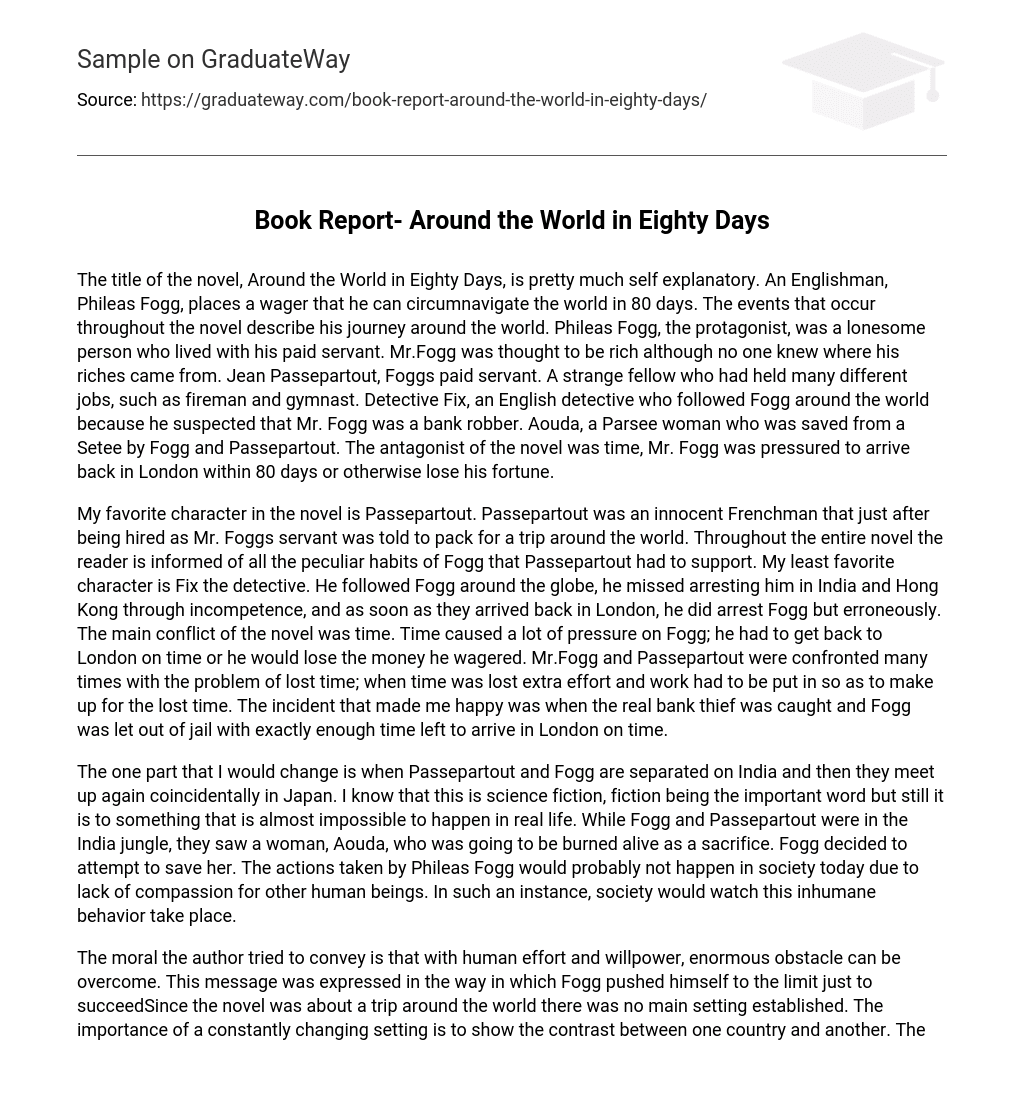The novel’s title, Around the World in Eighty Days, provides a concise summary of its plot. It chronicles the adventures of Phileas Fogg, an affluent Englishman who bets that he can complete a global journey within just 80 days. The narrative showcases Fogg’s exploits as he traverses various countries. Although Fogg is depicted as wealthy, the origin of his fortune remains undisclosed. His paid servant, Jean Passepartout, is a peculiar character with diverse expertise in professions like firefighting and gymnastics. Detective Fix, an English investigator, suspects Fogg of being a bank robber and relentlessly pursues him throughout his voyage. Aouda also plays a significant role; she is a Parsee woman whom Fogg and Passepartout rescue from peril during their travels. Time itself emerges as the primary antagonist in this tale since Fogg must return to London within 80 days or risk losing his wealth.
In the novel, my preferred character is Passepartout, an innocent Frenchman who, right after being employed as Mr. Fogg’s servant, was instructed to prepare for a journey around the world. The entire book recounts the various peculiar habits of Fogg that Passepartout had to tolerate. Contrastingly, my least favorite character is Fix, the detective. Fix trailed Fogg throughout the entire globe, displaying incompetence by failing to arrest him in India and Hong Kong. Only upon returning to London did Fix finally apprehend Fogg, albeit mistakenly. The central conflict of the novel revolved around time, exerting immense pressure on Fogg. Fogg had to promptly return to London to avoid losing the money he had wagered. Mr. Fogg and Passepartout regularly confronted the challenge of lost time, necessitating extra effort and work to compensate for it. The event that brought me joy occurred when the true bank thief was apprehended, resulting in Fogg’s release from jail with just enough time remaining to arrive in London punctually.
The one part that I would change is the separation of Passepartout and Fogg in India, and their coincidental reunion in Japan. Although I understand that this is science fiction, the fact that such a reunion would occur in real life is highly implausible. While in the Indian jungle, Fogg and Passepartout encounter a woman named Aouda, who is about to be burned alive as a sacrifice. Fogg decides to intervene and save her. However, Fogg’s actions are unlikely to occur in today’s society where there is often a lack of compassion for others. In such a situation, society would simply witness this inhumane behavior without taking any action.
The author’s moral is that with human effort and willpower, one can overcome enormous obstacles, as shown by Fogg’s determination and perseverance. Since the novel centers around a trip around the world, there is no specific main setting. The constantly changing setting serves to highlight the contrasting nature of different countries. The setting is significant to the plot because it allows the reader to understand the challenges the protagonist faces as they adapt to each new country.





